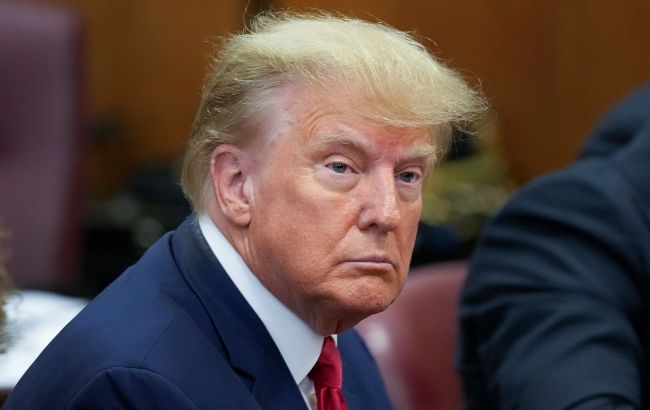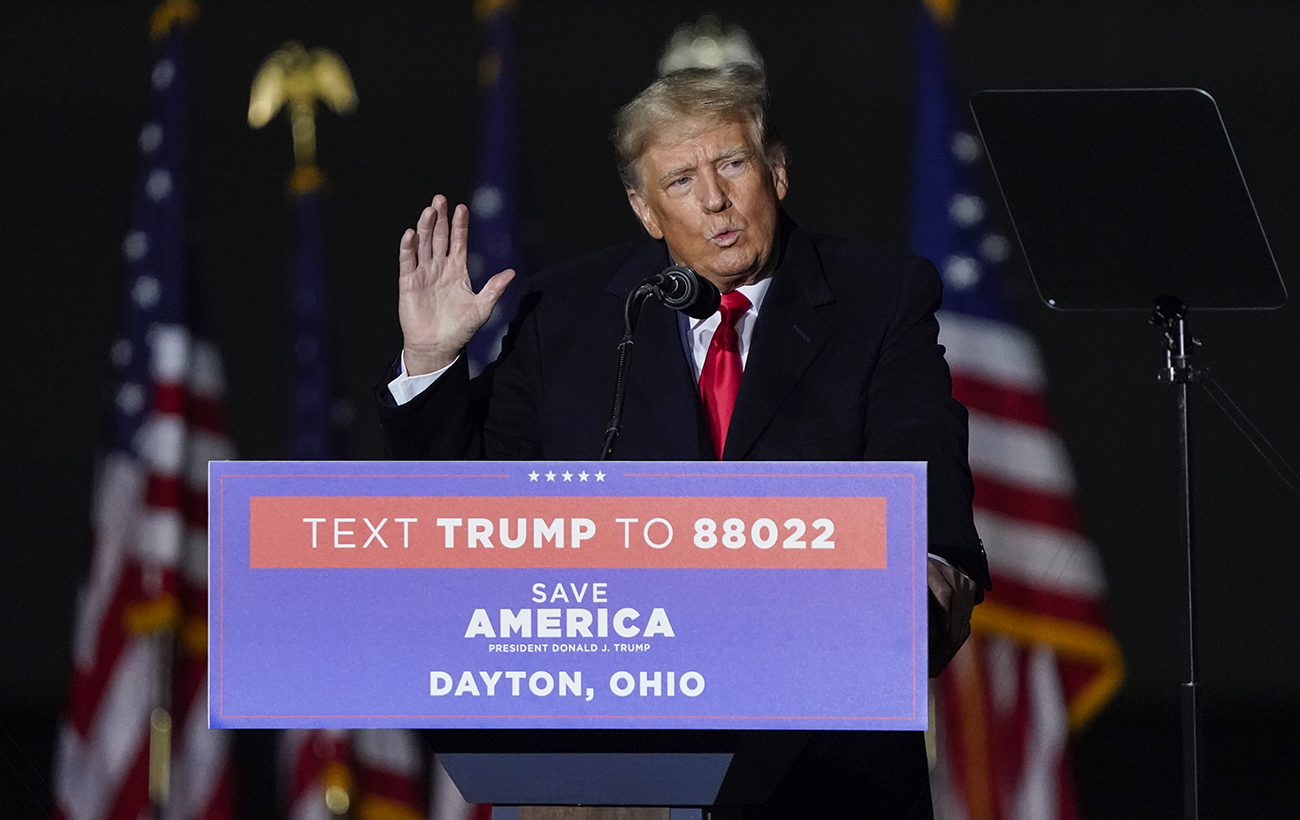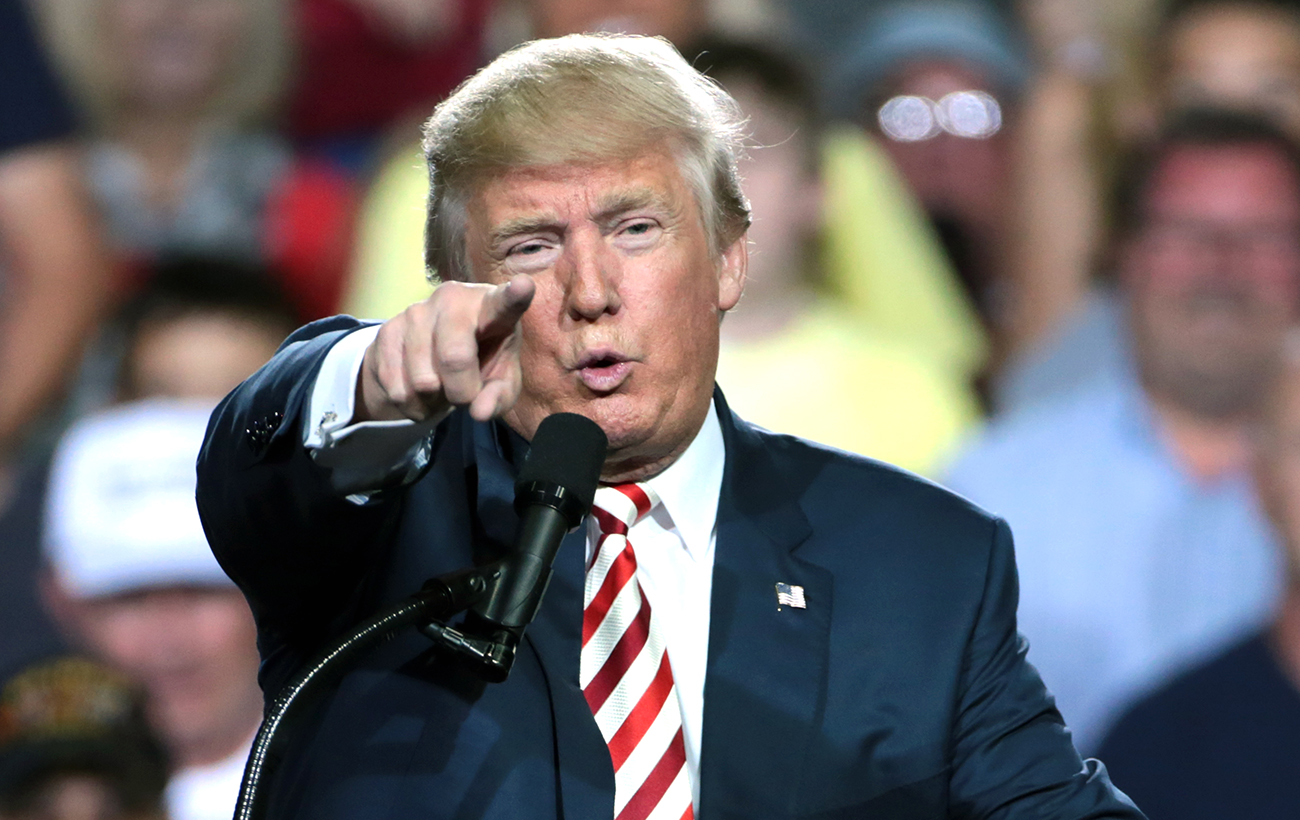Elections in U.S.: Is Trump to be disqualified due to Colorado court decision?
 Photo: Donald Trump, Former President of the United States (Getty Images)
Photo: Donald Trump, Former President of the United States (Getty Images)
The court decision in the state of Colorado, which disqualified Donald Trump from participating in the upcoming U.S. presidential elections, has become a major headline in American politics. However, the practical likelihood of Trump being unable to become a Republican presidential candidate is very slim.
RBC-Ukraine explains the details of this resonant decision, drawing on articles from CNN, The New York Times, The Washington Post, Axios, and the text of the U.S. Constitution.
Donald Trump's attempts to overturn the results of the 2020 U.S. presidential elections, in which he lost to Joe Biden, continue to haunt the former president. These attempts will impact the current presidential campaign where he aims to seek revenge against Biden.
Trump tried various methods to claim victory in the 2020 elections, from pressuring local authorities to find "additional" votes after their tally, to addressing his supporters in Washington on the eve of Biden's final victory confirmation, culminating in the violent storming of the Capitol on January 6, 2021.
As a result of these events, numerous criminal investigations and legal proceedings are unfolding in the United States. However, yesterday's decision by the Colorado court is the first specific and concluded case directly affecting Trump's current presidential campaign.
Colorado Court decision
The Supreme Court of the state of Colorado, with a four-to-three majority, has ruled that, according to the 14th Amendment to the United States Constitution, Trump cannot participate in the presidential elections within the state. The reason cited was his "involvement in the rebellion against the United States," as recognized by the court regarding the Capitol riot. The lawsuit was filed by six residents of Colorado in September and was partially satisfied in the lower court, subsequently appealed to the state's Supreme Court.
The judges had to address several fundamental questions: whether the Capitol riot was a significant enough event to be termed a "rebellion"; whether Trump's actions on November 6th fall under "involvement" in it; and finally, whether the relevant amendment to the Constitution can be applied to Trump in principle (on this, the initial court responded negatively).

Photo: Trump banned from taking part in Colorado elections (Getty Images)
The crux of the matter lies in the 14th Amendment to the United States Constitution, which contains a specific list of positions for which a citizen who participated in a "rebellion against the United States" is prohibited from being elected or appointed. While the position of the U.S. President is not explicitly mentioned among these, the Colorado Supreme Court decided that the presidential position falls squarely within state positions, albeit not explicitly stated.
The specific outcome of the court's decision is that Trump's name cannot be included in the lists of candidates for the Republican primaries in Colorado, scheduled for March 5th. Since he cannot run for president in this state, his participation in the primaries would be illogical and unlawful.
However, the court explicitly stated that the decision will not take effect until January 4th. If Trump decides to appeal to the U.S. Supreme Court, it will remain in abeyance until this court decides whether to take up the case. Trump's legal team promptly announced their intention to appeal to the Supreme Court of the country. Therefore, the Colorado court's decision is guaranteed not to take effect for some time.
Why the Court decision caused such a stir in the U.S.
The decision of the Colorado Supreme Court is unprecedented in the sense that, for the first time in American history, a citizen is disqualified from participating in the presidential elections. The 14th Amendment was adopted in 1868, shortly after the end of the Civil War in the U.S. The purpose of the provision to disqualify citizens who participated in the rebellion from elections and appointed positions was to prevent the return to power of defeated Confederate Southerners. In reality, this provision was applied quite rarely, the last time being in 1920.

Photo: Court's decision became unprecedented (Getty Images)
In the current political landscape of the United States, the decision of the Colorado court is illustrative, especially considering that 15 similar cases seeking to disqualify Trump from elections due to the events of January 6, 2021, are currently being heard in other states (courts had previously dismissed two dozen such lawsuits). Although each court theoretically acts independently, in practice, as noted by American media, the Colorado precedent may influence proceedings in other states.
How events may unfold
The fate of the U.S. presidential elections now largely hinges on the decision of the Supreme Court of the country (if it takes up Trump's appeal). The timing of the court's consideration and when a final decision might be reached remain open questions.
An important point is that while the Supreme Court will only review the decision of the Colorado state court, its final verdict in this case is likely to have nationwide implications. If the Supreme Court aligns with the Colorado court's opinion and prohibits Trump from running for election, especially after his nomination as the Republican presidential candidate (which is practically inevitable), and even closer to the November 2024 election date, political chaos in the country seems unavoidable. The course of the elections under such circumstances is unpredictable; only one certainty is that Trump himself will vehemently oppose such a decision and call on his supporters for new protests.
However, such a scenario appears unlikely. Currently, the U.S. Supreme Court has a Republican "supermajority": six Republican judges against three Democrats. Moreover, three of the six Republicans were appointed by Trump during his presidential tenure. Therefore, expecting a majority decision against the former president is not currently supported by evidence.
On a practical level, the Colorado court's decision will likely lead to a further increase in Trump's presidential ratings. At the very least, previous criminal and civil cases against him have only served to mobilize his supporters.

